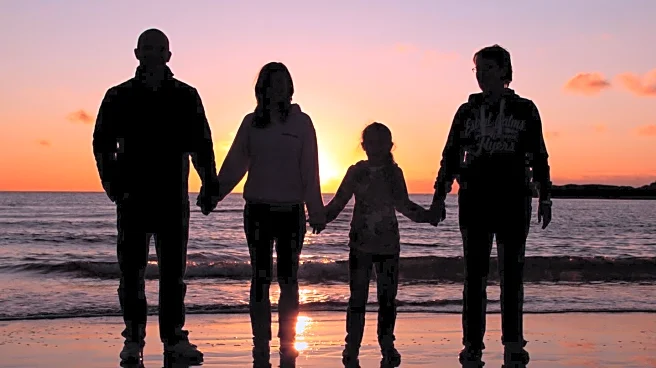What's Happening?
A parenting advice column in Slate Magazine has addressed a situation involving a woman who is recovering from leukemia and her adult daughter who moved in to help during her illness. The woman, now in remission, is facing challenges as her daughter, who is 44 years old, has not been contributing to household chores and is making recovery more difficult. The daughter has a full-time job but leaves dirty dishes and laundry for her mother to handle. The woman has expressed her desire for her daughter to move out, but her husband disagrees, complicating the situation further.
Why It's Important?
This situation highlights the complexities of family dynamics and caregiving roles, especially when a family member is recovering from a serious illness. It underscores the importance of communication and mutual understanding between partners in managing household responsibilities and supporting recovery. The story also reflects broader societal issues related to adult children living with parents and the expectations of caregiving roles. It raises questions about the balance between providing support and fostering independence, which can impact family relationships and individual well-being.
What's Next?
The advice given suggests that the woman should focus on communicating with her husband to reach a consensus on their home life and the daughter's role in it. It is recommended that they have thoughtful conversations to understand each other's perspectives and find a solution that respects the woman's need for a peaceful recovery environment. The husband may need to articulate his reasons for wanting the daughter to stay and possibly take responsibility for addressing her behavior or compensating for her lack of contribution.
Beyond the Headlines
This situation may prompt discussions on the ethical and emotional aspects of caregiving within families, especially when adult children are involved. It could lead to broader conversations about the expectations placed on family members during health crises and the need for clear communication and boundaries. The story may also resonate with others facing similar challenges, encouraging them to seek advice and support in navigating family dynamics during recovery.










